Five Years After Khashoggi’s Murder, MBS Is Laughing
The US and other Western governments said they'd had enough of Saudi Arabia but it appears the Kingdom's oil and wealth are too hard to resist.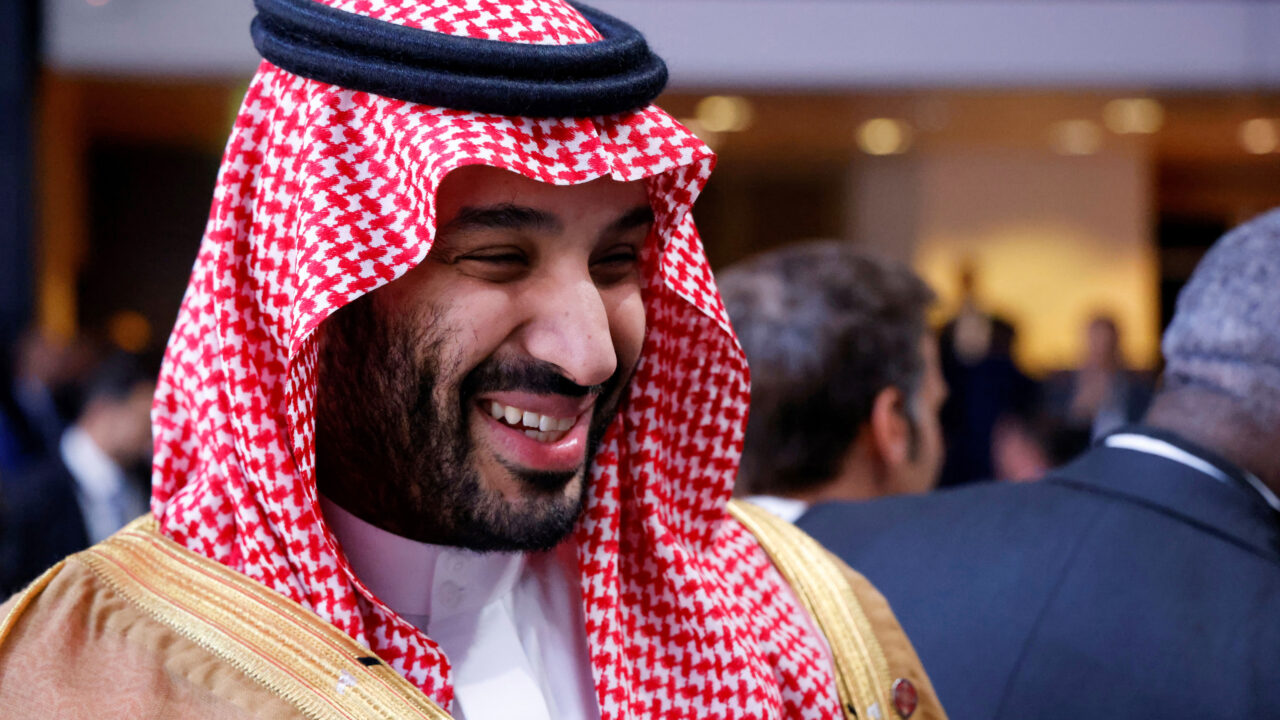 Saudi Crown Prince Mohammed bin Salman smiles at the New Global Financial summit in Paris Thursday, June 22, 2023. (Ludovic Marin, Pool via AP)
Saudi Crown Prince Mohammed bin Salman smiles at the New Global Financial summit in Paris Thursday, June 22, 2023. (Ludovic Marin, Pool via AP)
“You’ve got to leave the country, Jamal. You’ve got to get out before they arrest you too,” I told my friend, Jamal Khashoggi, just a few months before his fateful decision to leave his homeland in 2017.
Little did we know that rather than find safety in Washington D.C., Mohamed bin Salman and his henchmen would trick him into visiting the Saudi consulate in Istanbul, where they brutally tortured and murdered him. Little did we expect that five years after his shocking murder, the Biden administration would be potentially rewarding MBS with an unprecedented security guarantee for his monarchical dictatorship.
As a human rights advocate, this was not the first time I had urged someone to flee from an Arab regime, but the others were prominent activists long in conflict with their governments. Khashoggi was a long-time government insider, acting as spokesman for the Saudi embassy in Washington D.C., where we first met, before returning to serve as a journalist and editor in the Saudi media. We remained in touch over the years, and I saw his evolution during the Arab Uprisings of 2011, when he came to the firm conclusion that only democracy and the rule of law would secure stability and peace for the Middle East.
With the rise of King Salman and his son, Mohamed bin Salman (MBS), then merely the deputy crown prince, in 2015, repression in the country escalated dramatically. By 2017, they carried out mass arrests of the Kingdom’s leading reformers, religious leaders, journalists, and activists, even before the roundup and shakedown of hundreds of the country’s business and royal family leaders. After Khashoggi penned an article critiquing then-President Trump, MBS ordered him to stop writing and remain quiet.
Little did we expect that five years after his shocking murder, the Biden administration would be potentially rewarding MBS with an unprecedented security guarantee for his monarchical dictatorship.
Khashoggi faced a terrible choice: remain in the country effectively as a prisoner or flee. Initially, he refused to leave, sending me pictures of his grandchildren to explain why leaving the country would be too great a pain for him to bear. I argued and tried to persuade him: he could just take a temporary break, until things calmed down. Perhaps the King and MBS would relent in their repression, confident their rule was secure. Perhaps they would release those they had imprisoned, many of them Khashoggi’s friends. But remaining in the country at that moment would be too great a danger. So Khashoggi finally relented and came to the United States, hoping that he would, indeed, one day return.
Khashoggi soon found himself with a global audience, and able to express his true voice in his writings for the Washington Post, where his columns provided the only independent Saudi counterpoint to the unfolding disasters under the country’s new rules, not just domestically but in MBS’s catastrophic war in Yemen. MBS and his cronies tried hard to persuade him to come back, promising to lavishly fund a center for him back in Riyadh. We laughed at the ham-handed pleading texts from Saud al-Qahtani, MBS’s top henchman, who would later go on to be the principal engineer of Khashoggi’s murder.
By 2018, Khashoggi knew he could never return so long as King Salman and MBS remained in power. He grieved his loss but understood that his principles required that he speak out, remarking, “I have left my home, my family, and my job, and I am raising my voice. To do otherwise would betray those who languish in prison. I can speak when so many cannot.”
He told me about his plans to launch a new organization in Washington D.C., Democracy for the Arab World Now, because he understood the outsized role that the United States played in protecting and enabling the region’s dictatorships. He dreamed of a group that would challenge continued U.S. support for them. In June of 2018, he showed me his new business card as the Executive Director of DAWN. On October 2, 2018, MBS executed his plan to murder Khashoggi, hoping to silence him once and for all.
Following the global uproar over Khashoggi’s murder, the United States and Western governments around the world strongly condemned the murder, suspended arms sales to Saudi Arabia and promised to hold the perpetrators accountable. Businesses ended their ties to the Kingdom, canceling contracts and returning Saudi government investments. Many believed that Khashoggi’s death would not be in vain, because at last, it would trigger a recalibration of Western protection for the violent, sociopathic Saudi leadership.
Such was the change in mood Khashoggi’s death triggered that Congress voted on three occasions to end arms sales to Saudi Arabia, and President Biden campaigned on a pledge to hold Saudi Arabia accountable for the murder, to make them “pay the price, and make them the pariah that they are,” arguing that there was “very little social redeeming value in the present government in Saudi Arabia.”
Five years since Khashoggi’s murder, however, the United States and other Western governments are falling over themselves to woo Saudi Arabia and MBS. The twin sirens of Saudi’s billions in buying power — including the world’s largest arms purchases — and control over oil prices are too great to resist, and MBS has understood that the best way to bring the West to heel is to threaten closer ties to China.
Five years since Khashoggi’s murder, however, the United States and other Western governments are falling over themselves to woo Saudi Arabia and MBS.
In a remarkable turn of fate, the once globally reviled MBS finds himself lauded with awards in Pakistan, feted in Paris by President Macron, and invited for a state visit in London. Most dangerous of all, President Biden is now reportedly offering MBS the ultimate prize: a treaty-level security guarantee that commits American troops to protecting his dictatorship, purportedly as his reward for normalizing with Israel.
What’s so painful and disturbing about these developments isn’t just the failure of Western governments to stay true to their promises to hold MBS accountable for the murder of Khashoggi, or the murder of hundreds of thousands of Yemenis, who continue to endure a Saudi blockade of their country. It’s their willingness to sell our values for short-term economic and political returns, whatever the costs to those who face increasing attacks by not just the Saudi government, but copy-cats like India.
With expanded Saudi acquisitions of Western businesses, cultural and sporting institutions, and even hundreds of former political and military officials, the message MBS is sending is that he can buy our democracies too.
Perhaps Western political leaders will come to their senses and understand the cost of acquiescing to tyrants like MBS is simply too high, not just tainting and humiliating our nations as we knowingly capitulate to a tyrant’s demands, but undermining the true our competitive edge — our freedoms and our rights. But the onus will rest, as it always must in our democracies, on the citizens of our countries to demand that we do better, for the people of the Middle East and the people of our own region.
Your support matters…Independent journalism is under threat and overshadowed by heavily funded mainstream media.
You can help level the playing field. Become a member.
Your tax-deductible contribution keeps us digging beneath the headlines to give you thought-provoking, investigative reporting and analysis that unearths what's really happening- without compromise.
Give today to support our courageous, independent journalists.

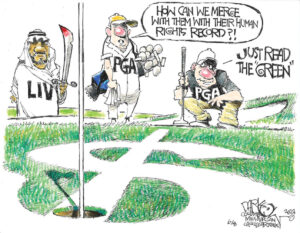
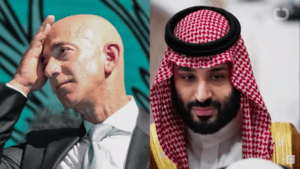
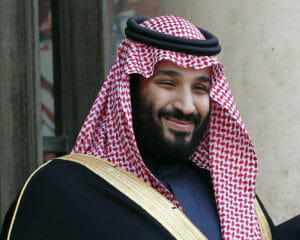
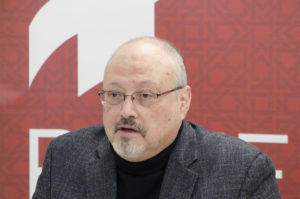
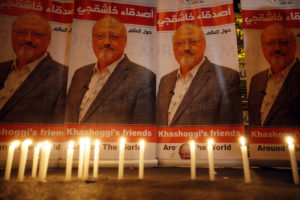
You need to be a supporter to comment.
There are currently no responses to this article.
Be the first to respond.